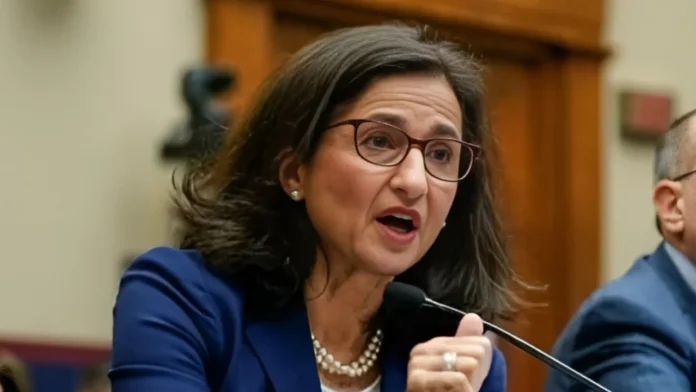Columbia University President Minouche Shafik has resigned, effective Wednesday, after facing intense criticism from both pro-Israel and pro-Palestinian groups regarding her handling of campus protests related to the Gaza conflict.
This decision comes nearly four months after the university faced intense scrutiny over its handling of campus protests related to Israel’s conflict in Gaza.
Shafik’s departure aims to ensure new leadership is in place before the new academic term begins on September 3, when protests are expected to resume.
Shafik stated that her resignation was prompted by the prolonged period of turmoil and the significant toll it had taken on her family and the university community.
The campus has been embroiled in conflict, with protests in April and May resulting in hundreds of arrests.
Demonstrators criticized Shafik for calling the police to break up the protests, while others felt she had not done enough to address the concerns of pro-Israel supporters.
Katrina Armstrong, the dean of Columbia’s medical school, will serve as interim president.
Armstrong acknowledged the challenges faced by the university over the past year and pledged to address the issues head-on.
Shafik’s resignation follows similar moves by two other Ivy League presidents, Liz Magill of the University of Pennsylvania and Claudine Gay of Harvard, who also stepped down after facing criticism.
Shafik, an accomplished economist, will return to the UK House of Lords and chair a review on international development.
The ongoing conflict in Gaza has led to significant loss of life and displacement, further complicating the situation at Columbia.
Student groups, including Columbia University Apartheid Divest, have expressed hope that the next president will better address their demands for divestment from companies supporting Israel’s military actions.




